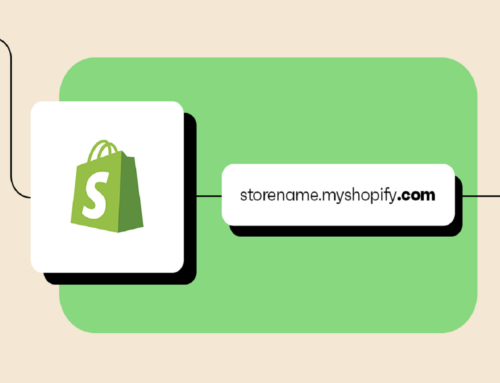Shopify is a popular eCommerce platform known across borders for its simplicity and list of functionalities. Nevertheless, its basic package may not fully satisfy some large-scale businesses with complex needs. As a result, these retailers regard Shopify Commerce components as important issues. These commerce components make it easy for retailers to harness a complete set of tools and functionalities.
In this guide, BSS Commerce Shopify introduces Shopify Commerce component lists in the blog below to show how each category works and their benefits when using them. Don’t waste any more time; check out now!’
Contents
- 1 Shopify Commerce Components: At a Glance
- 2 Main Difference Between Shopify Plus and Commerce Components
- 3 Shopify Commerce Components List
- 3.1 Storefront – Building your customer’s experience
- 3.2 Cart and Checkout – Streamlining the buying process
- 3.3 Core Commerce – Build your business with essential capabilities
- 3.4 Data and Compliance – Drive sales with secure and accurate customer data
- 3.5 Shipping and Logistics – Streamline your order logistics
- 3.6 Omnichannel – Sell anywhere while maintaining a unified view of your business
- 4 Benefits of Using Shopify Commerce Components
- 5 Brands using Commerce Components by Shopify
- 6 Bottom Line
Shopify Commerce Components: At a Glance
Shopify Commerce components are designed for major retailers who have very detailed requirements. Businesses are able to choose the specific technologies they want from those available as pieces which they use in online trade. The general framework allows for easy connection of these to already existing systems. With this approach, retailers can come up with unique individual eCommerce solutions using Shopify that come with necessary items like cart management, checkout processes, data handling, and shipping logistics.
Enterprise-level retailers can with Shopify’s extensive global infrastructure easily link through Commerce components also. Businesses have the ability to scale and adapt their unique requirements for eCommerce platform by using more than 30 modular components offered.

Why Shopify Release Commerce Components?
Enterprise retailing faces significant hurdles in today’s fast-paced technological landscape as well as changing customer expectations and as such have to innovate all the time to fit in the market . This calls for a commerce solution that stresses on flexibility, integration and innovation with no boundaries thereby enabling faster team operations because it comprises dependable infrastructure components.
Below are the key reasons why Shopify released Commerce Components:
- Commerce components Shopify offer enterprise retailers a unique blend of Shopify’s reliable, high-performing components, such as the checkout feature that outperforms typical checkouts by 72% and mobile checkouts by 91%.
-
Using flexible APIs, retailers are able to create interactive customer experiences that can be seamlessly integrated with their preferred back-office services.
-
Go with the trending concept of headless eCommerce: There is a new trend in headless e-commerce – an ability to achieve more convenience and personalization. So as to become a leader in these emerging niche areas, Shopify has made good use of its Commerce components.
Who Uses Shopify Commerce Components?
Shopify Commerce components targets a specific customer segment: large, enterprise-level businesses. These are typically companies with:
- High revenue: Often exceeding $500 million in annual online sales.
- Sophisticated requirements: Their online stores have intricate needs that necessitates for a high level of personalization and control over the shopping experience.
- Current tech stack: Businesses are likely to have existing technology infrastructures and require the ability to incorporate eCommerce components fluidly.
Here are some examples of businesses that might leverage Commerce components Shopify:
- Major retail chains: Think of large retail chains or well-known brands that have built a strong web presence.
- Larger companies that started online: Companies that mostly use internet stores and need much customization.
- Varying brand companies: Companies that have different brands are not just about one company. Each of them may need its separate online trade organization.
Hence, Shopify Commerce components cater for firms which have escaped from the trappings of classical eCommerce platforms and are looking for something that is powerful and flexible enough to correspond with their unique requirements.
>> Try It Out: Shopify Commerce Components
Shopify Commerce Components Pricing
The Shopify Commerce Components pricing are not accessible to the public. Shopify has indicated that the pricing will be determined based on usage and the number of components that a retailer intends to utilize. To obtain more precise pricing information, it is advisable to directly reach out to Shopify’s sales team.
Main Difference Between Shopify Plus and Commerce Components
Here’s a comparison table about the main difference between Shopify Plus & Commerce components:
| Highlight Features | Shopify Plus | Commerce Components |
| Pricing | Custom pricing based on business needs | Modular pricing, pay for what you use |
| Customization | Extensive customization options with apps and themes | High degree of customization with APIs and SDKs |
| Scalability | Designed for high growth businesses, scales with you | Highly scalable, suitable for businesses of all sizes |
| Support | Dedicated support team and Merchant Success Program | Depends on the specific component and provider |
| Integration | Broad app ecosystem for comprehend integration | Flexible integration options with third-party services |
| Ease of use | User friendly interface, minimal technical knowledge required | Some components may require technical expertise |
| Target audience | Medium to large businesses looking for growth | Businesses seeking specific solutions for efficiency |
| Availability | Available globally | Availability may vary by component and region |
The Final Verdict: Shopify Plus caters to the needs of large businesses by offering tools to manage high traffic and scale operations effectively. It provides features like multi currency support, wholesale channels, and personalized support. In contrast, Commerce components Shopify are specialized modular tools that prioritize customization and flexibility for enterprise brands with unique or intricate needs. Although both platforms target large businesses, Commerce Components emphasize customization and flexibility to a greater extent.
Shopify Commerce Components List
In order to build your own eCommerce platform, Shopify Commerce components provide you with some of its components. Let’s take a look at the table below and analyze six components thoroughly:
Storefront – Building your customer’s experience
- Headless API: Design distinctive commercial interactions for a range of platforms such as web and mobile apps, AR, VR as well as 3D models.
- Headless SDK: Easy to maximize your commerce interactions with the headless SDK, Hydrogen, and Shopify’s React-based framework. You can then deploy on your preferred hosting provider or on Oxygen.
- Low-code storefronts: Create robust, large-scale online stores using Liquid, Shopify’s flexible templating language.
- Headless hosting: Deploy your Hydrogen storefront instantly and at no additional cost on Oxygen, Shopify’s integrated hosting platform. Experience enhanced performance on a global level.
- Content: Enhance the content experiences for your online store by using Shopify’s custom data models or integrating with your current CMS.
- Storefront search: The AI-powered search feature is designed to assist customers in discovering the most relevant products based on a combination of product and user signals.
You may concern: Shopify Store Login For Admins and Customers
Cart and Checkout – Streamlining the buying process

- Cart: These commerce components from Shopify are responsible for handling the functionality of the shopping cart. They enable customers to easily add, remove, and update items in their cart before proceeding to checkout.
- Checkout platform: Enhance your earnings with the most effective checkout process globally. Avoid the hassle, expenses, and risks of creating your own.
- Payments platform: You have the option to use your own payments processor, seamlessly integrate Shopify Payments, or collaborate with any of the extensive network of over 100 top payment providers worldwide.
- Tax platform: These commerce components on Shopify automatically compute and gather sales tax according to the customer’s location, guaranteeing adherence to regulations. Also, it optimizes your tax process by integrating tax technology with your preferred third-party services.
- Fraud protection: Ensure the safety of your earnings by utilizing fraud protection that is built upon data gathered from countless retailers across the globe.
Core Commerce – Build your business with essential capabilities
- Product catalog: Commerce components are responsible for handling all aspects of your product information, which includes managing descriptions, pricing, images, and inventory levels efficiently.
- Custom data models: Build personalized fields and entities to represent your distinct business information and enhance fundamental business processes.
- Selling across borders: Shopify eCommerce components including or that have tools for dealing with multi-currency pricing, localized content or such things as and global shipping streamline global sales.
- Subscriptions: Create tailored subscription plans that ensure stable revenue flow and promote brand loyalty.
- Customer data: Commerce components Shopify provide subscription services to generate recurring income and enhance customer retention. You can enhance power growth and customer retention by leveraging precise customer data that seamlessly integrates with your centralized customer database.
- Discounts: Customize your discounts and promotions using Shopify or your current marketing platform to effectively target specific customers with the right promotion.
- Functions extensibility: Enhancing Shopify’s back-end business logic to suit the checkout process, order routing, and more is easy due to the extensible functions.
- B2B: Migration of the bulk of your items enables you to sell directly at a single location supplemented by the flexible integrations, available with open APIs, automatization of processing of orders as well as the B2B functions.
Data and Compliance – Drive sales with secure and accurate customer data

- Data analysis: The Shopify commerce components provide valuable information on customer behavior and website traffic in order to enhance your marketing strategies. You can use Shopify QL, the specialized query language designed for eCommerce, to extract valuable business insights or transfer data to your personal data warehouse.
- Marketing insights: Create a secure event-based data layer that establishes connections between customers on various devices.
- Card data and vaulting: Use the secure vault or seamlessly incorporate your current solution to enhance processing speed and increase authorization rates.
- Security and compliance: These commerce components on Shopify leverage the robust infrastructure of Shopify, which includes built-in security features to safeguard your store and customer data. Therefore, you can ensure privacy and security by using detailed permissions, security measures, and adherence to SOC 2 compliance standards.
Shipping and Logistics – Streamline your order logistics

- Fulfillment: Provide comprehensive logistics services, covering everything from managing inventory and receiving shipments to transporting goods for final delivery.
- Order management: Commerce components enable the tracking and management of customer orders, ensuring transparency and effective communication throughout the entire process, from order placement to delivery. This is achieved by seamlessly integrating with your chosen order management system and allowing you to establish personalized business rules.
- Inventory: To prevent stockouts and overselling, Commerce components Shopify ensure precise inventory levels are maintained across various sales channels, such as online stores and physical locations. You can sell confidently thanks to connecting your inventory management system for real-time synchronization.
- Returns: Monitor the financial impact of returns on your overall profitability through a centralized system designed specifically for managing returns.
Omnichannel – Sell anywhere while maintaining a unified view of your business
- Point of sale (POS): Easy to integrate your online and offline sales through customized connections compatible with various point-of-sale platforms, such as Shopify POS.
- Social commerce: Shopify commerce components enable direct selling on popular social media platforms such as Facebook and Instagram to broaden your customer base and reach new segments of potential buyers.
- Chat and support: Combine chat and support tools in order to create personalized sales processes.
Benefits of Using Shopify Commerce Components
Shopify Commerce Components provides a compelling solution for large-scale retailers in search of a flexible and customizable online store. Here are the compelling benefits of leveraging Commerce components Shopify to craft the perfect online storefront for your brand:
- Tailored Fit: In a pool of over thirty modular components democracy in building Shopify commerce elements is allowed so that one is free to select them which is right for them. A person can blend these kits into an existing system without any hassle which leads to a unique eCommerce journey.
- Future-proof Flexibility: Commerce Components proposes a solution that will last in time by enabling smooth mixing of excellent services from different providers, offering a universal solution.
- Effortless Scaling: Commerce Components offers unmatched scalability for Shopify stores which wipes out API constraints and structure bounds. System can easy to adjust to growing website traffic and sales numbers.
- Speed Demons Rejoice. Fast loading speed is important for businesses that operate online. Shopify Commerce Kit exploits resilient infrastructure which belongs to Shopify in order to make sure purchasers are satisfied due to great uptime and fast reactivity on front-end store which can rise the level of services quality people receive when they are shopping online.
- Security Fort Knox: Your data is secure with Shopify Commerce Components because it prioritizes safeguarding your customer data and conforming to PCI compliance requirements using standard safety features. Know that they use the latest protocols with an assurance that the data is safe for you as a customer.
- Streamlined Savings: Having this seamless integration with current systems and functionalities including automated order processing, it whole enhances operational efficiency. When this happens, not only does this save time but it also cuts down on the resources used. In turn, such improvements call for substantial cost reduction in the long run.
- Innovation Playground: Thanks to its great community of developers and the opportunity to come up with custom functions, this software allows you adapt eCommerce activities in order to correspond your different customer groups and commercial objectives.
>> A look at: The Power Of Shopify Functions In Boosting Online Sales
Commerce components Shopify allow companies to build their own unique online stores that will serve them well into the future. By using headless commerce and the strong infrastructure of Shopify, firms’ potential for growth and customer participation is greatly increased. Hence, what are the first pioneering companies benefiting from Shopify Commerce components? In order to find out we’ll take a look at some brands that have implemented Commerce parts from Shopify below.
Brands using Commerce Components by Shopify
Numerous renowned brands have incorporated Shopify’s commerce components into their operations. Here are some examples:
- Mattel (January 1945, 79 years ago, in Los Angeles, California, U.S)
- JB Hifi (1974, Keilor East, Victoria, Australia)
- Coty (1904 in Paris, France)
- Steve Madden (1990, Long Island City, New York City, U.S)
- Spanx (Atlanta, Georgia, U.S)
These brands are using the adaptability and expandability of Shopify’s commerce components to improve their digital shopping experiences. No doubt this list will increase rapidly as enterprise retailers look to refine their online presence, create connected experiences between in-store and online, and bring down the cost and maintenance of legacy tech stacks.
Bottom Line
In a nutshell, Shopify commerce components cater to the specific needs of enterprise brands by offering a customizable set of tools. Businesses can seamlessly integrate these components with their existing technology and select only the Shopify tools that are essential for their operations. This ensures that businesses have the flexibility, scalability, and agility needed for success. With a wide range of over 30 modular components, Commerce Components are ideal for large-scale businesses with intricate requirements.
If your business caters to the specific audience of Shopify Commerce components, it may be beneficial to explore the use of Commerce components to enhance the efficiency of your business processes.




